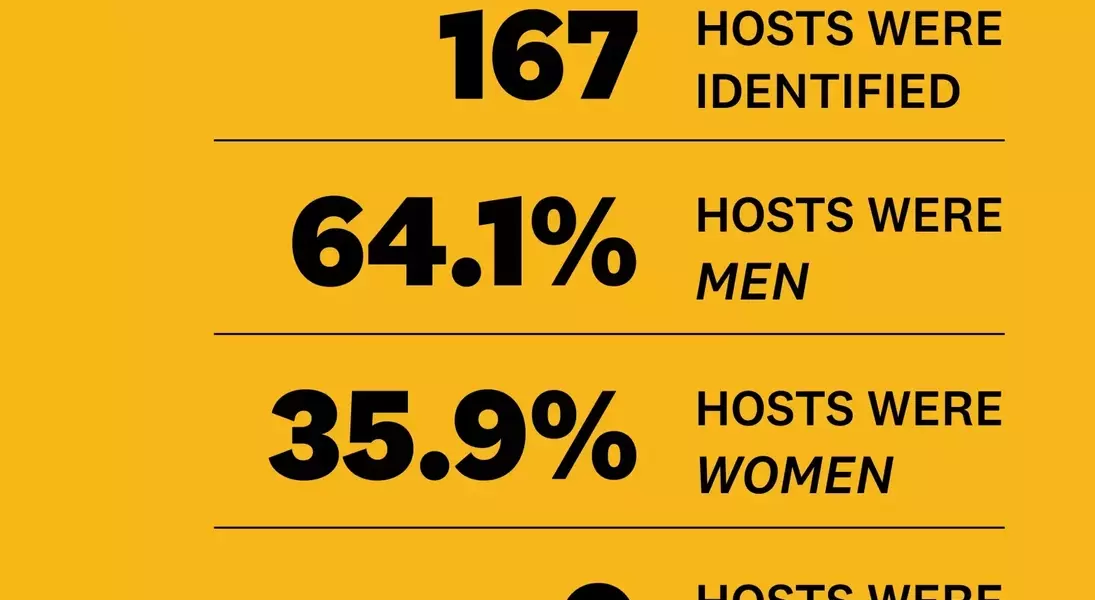



A new comprehensive study has brought to light a significant imbalance within the thriving podcasting landscape, indicating a pronounced male and white dominance in both hosting roles and guest appearances. This groundbreaking research, conducted by the USC Annenberg Inclusion Initiative, underscores the urgent need for greater diversity and representation in this rapidly expanding audio medium. The findings suggest that despite podcasting's accessible nature, it largely mirrors traditional media in its demographic skew, presenting a stark contrast to the diverse audiences it serves. This report serves as a critical call to action for the industry to actively foster a more inclusive environment that truly reflects the global community of listeners.
Dissecting the Disparity: Annenberg's Revealing Podcast Study
On November 11, 2025, a compelling study from the USC Annenberg Inclusion Initiative was released, shedding light on the prevailing demographics within the podcasting sphere. Researchers meticulously examined data from more than 600 of 2024's most popular podcasts, sourced from Spotify. The analysis unveiled that within the top 100 podcasts, a substantial two-thirds were hosted by men, with male guests accounting for nearly three-quarters of all appearances. This gender disparity was particularly evident in specific genres, including business, technology, sports, fitness, and comedy, where women's voices were notably scarce.
Conversely, women were observed to have a more prominent presence in true crime, arts, society and culture, news, and educational podcasts. The study further highlighted a significant racial imbalance, revealing that over 77% of the hosts among the top 100 podcasts identified as white. This statistic points to a notable exclusion of diverse communities from the main narratives of the podcasting world. Alarmingly, only eleven female hosts from racially underrepresented backgrounds were found within the top 100, with several having ties to NPR.
Stacy L. Smith, the visionary founder of the Annenberg Inclusion Initiative and lead author of the study, emphasized the inherent potential of podcasting as a democratized platform. She articulated that its accessibility should ideally challenge long-standing entertainment norms and pave the way for a more diverse audio landscape. The research team noted that the gender and racial inequities observed in podcasting surpassed those identified in their previous studies of the film, television, and music industries. Their most recent data indicates that only 22.3% of podcast hosts come from underrepresented groups. In contrast, over 44% of regular actors in television series and popular music artists, along with 25.2% of lead or co-lead actors in films, are individuals other than white men. This marks the Annenberg team's initial foray into examining the podcasting domain, setting a crucial benchmark for future discussions and advancements in media diversity.
This comprehensive examination serves as a potent reminder that the digital age, while promising democratization, still grapples with deeply ingrained biases. The findings from the USC Annenberg Inclusion Initiative underscore the urgent need for a conscious and sustained effort to dismantle these barriers. For podcast creators and industry leaders, the study offers an invaluable opportunity to reassess existing frameworks and actively champion voices that have historically been marginalized. Embracing genuine inclusivity is not merely a matter of social justice; it is an imperative for the continued growth and evolution of podcasting as a truly representative and impactful medium. By fostering an environment where diverse perspectives flourish, the industry can unlock new creative avenues, resonate with a broader audience, and truly fulfill its potential as a powerful platform for communication and connection.
